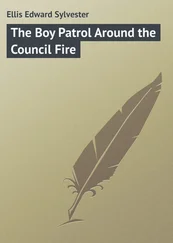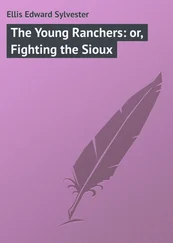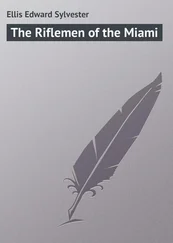Edward Ellis - A Waif of the Mountains
Здесь есть возможность читать онлайн «Edward Ellis - A Waif of the Mountains» — ознакомительный отрывок электронной книги совершенно бесплатно, а после прочтения отрывка купить полную версию. В некоторых случаях можно слушать аудио, скачать через торрент в формате fb2 и присутствует краткое содержание. Жанр: foreign_prose, foreign_children, на английском языке. Описание произведения, (предисловие) а так же отзывы посетителей доступны на портале библиотеки ЛибКат.
- Название:A Waif of the Mountains
- Автор:
- Жанр:
- Год:неизвестен
- ISBN:нет данных
- Рейтинг книги:4 / 5. Голосов: 1
-
Избранное:Добавить в избранное
- Отзывы:
-
Ваша оценка:
- 80
- 1
- 2
- 3
- 4
- 5
A Waif of the Mountains: краткое содержание, описание и аннотация
Предлагаем к чтению аннотацию, описание, краткое содержание или предисловие (зависит от того, что написал сам автор книги «A Waif of the Mountains»). Если вы не нашли необходимую информацию о книге — напишите в комментариях, мы постараемся отыскать её.
A Waif of the Mountains — читать онлайн ознакомительный отрывок
Ниже представлен текст книги, разбитый по страницам. Система сохранения места последней прочитанной страницы, позволяет с удобством читать онлайн бесплатно книгу «A Waif of the Mountains», без необходимости каждый раз заново искать на чём Вы остановились. Поставьте закладку, и сможете в любой момент перейти на страницу, на которой закончили чтение.
Интервал:
Закладка:
“You must have looked very quick,” said Vose; “for the horrible words was simultaneous with the flattenin’ of your big forefinger. Howsumever, I gazed round myself and am happy to say she warn’t in sight. If she had been, I’d smashed all your fingers.”
“A very proper Christian spirit,” commended Wade; “I hope all the rest of you will strive to emerlate it.”
Felix Brush was leaning on the end of the bar with a glass of steaming toddy, which he had partly sipped, and was now caressing with his hand.
“Gentlemen,” said he impressively, “permit me a word. Wade has touched a subject which appeals to us all. I have given it much thought for the past few days and feel it my duty to look after the religious instruction of the child.”
Two or three disrespectful snickers followed this declaration. The parson instantly flared up.
“If any reprobate here feels a desire to scoff, he’s only to step outside for a few minutes and see who can get the drop on the other.”
Everybody knew that the parson was always well heeled, and no one questioned his courage. His friends contented themselves with pitying smiles and significant glances at one another. Felix hastily swallowed his toddy, with the evident intention of airing his emphatic views, when Wade Ruggles interposed:
“Pards, you’re gettin’ off the track; we hain’t got to the religious racket yit; that’ll come later. What I want to ’rive at is as to using cuss words and unproper language where the angel hears it. It ain’t ’nough for us to agree that we won’t do it; it must be fixed so we don’t take no chances.”
This was not exactly clear and Wade was asked to be more explicit.
“I mean that there must be a penalty, such as will stop a galoot that has once offended from doing the same thing again.”
This clearly intimated that the punishment which the chairman had in mind was of a frightful nature. The landlord begged Wade to come down to particulars.
“My idee is that whoever offends this little one by unproper language shall be filled full of bullet holes: how does that strike you?”
“It hits me just right!” responded the landlord, with several nods of his head; “but there’s one thing in the way.”
“What’s that?” demanded Wade, showing some temper at this attack upon his scheme.
“It ’lows a man to say the unproper words in the hearin’ of the angel, afore he’s shot; so it won’t prevent her ears from being ’fended. Can’t we fix it some way, so that she shan’t hear ’em at all?”
“There’s no trouble about that,” solemnly remarked Budge Isham from his seat at the further end of the room; “You have only to find out when a fellow has made up his mind to use improper language in the presence of the child, and then shoot him before he can say the words.”
“But how shall we know he’s going to say ’em?” inquired the chairman, who in the earnestness of his feelings felt no suspicion of the honesty of his friend.
“You will have to judge that by the expression of his countenance. I think when a fellow has made up his mind to swear his looks give notice of what is coming. The rest of us must be on the alert and pick him off before the words get out of his mouth. And yet I am sorry to say,” added Budge gravely rising to his feet, “that there is one serious drawback to my proposition.”
“The chairman is anxious to hear it.”
“There might be mistakes made. A man’s expression is not always an index of his thoughts. He might be suffering from some inward pain, and be in the act of uttering some expression, but his face could have so mean a look that if our law was in force, he would be shot on sight. For instance, studying these faces all turned toward me, I should say, speaking on general principles, that all except one or two deserve, not shooting, but hanging, and if looks were to determine a man’s depth of infamy, mighty few of you would live five minutes.”
Budge sank gravely into his seat and resumed smoking, while his friends, understanding his trifling character, contemptuously refused attention to his disrespectful remarks. In the general discussion which followed, several insisted that the only proper punishment for the grave offence was death; but the sentiment crystallized into the feeling that that penalty was somewhat severe for the first breaking of the law. It was proper enough for the second crime, but a man who had been accustomed to picturesque and emphatic words was liable to err once at least while on the road to reformation. The agreement finally reached was that the offender should be heavily fined, compelled to fast several days, or, more frightful than all, be deprived of the privileges of the bar for the same length of time. When the last penalty was fixed there were several suppressed groans and a general setting of lips, with the unshakable resolve to steer clear of that appalling punishment.
Everything was serene for several days, when, as might have been anticipated, the explosion came. Al Bidwell, in coming out of the Heavenly Bower, caught the toe of one of his boots and fell forward on his hands and knees. Two of his friends seeing him naturally laughed, whereupon, as he picked himself up, he demanded in the name of the presiding genius of hades, what they saw to laugh at. By way of answer, one of them pointed to Nellie Dawson, who ran forward to help him to his feet.
“Did you hurt yourself, Mr. Bidwell? I’s so sorry.”
“You may well be, little one,” was the bitter response, as he realized his awful offence; “for this will play thunder with me–there it goes agin! Please don’t say another word,” he exclaimed desperately, striding down the street to save himself from piling up a mountain of unpardonable crimes.
The committee did not gather until late that evening, for Nellie was at home and it was thought advisable to wait until she was asleep, so that she should not know anything of what was in the air. The conversation was in subdued tones until Mr. Dawson tip-toed out of the rear room, with the announcement that the little one was sunk in slumber.
“Such bein’ the case,” remarked Wade Ruggles, with becoming gravity, “this meeting will proceed to bus’ness. Pards, a hein’us crime has been committed among us. In the proud history of New Constantinople, we’ve had hangin’ bees; we’ve shot three Injins ’cause they was Injins; there has been any number of holes plugged inter them as was a little careless of speech, and more’n once there has been the devil to pay, but nothin’ like this, never ! Vose Adams, you was one as heard this wretch Bidwell indulge in his shocking profanity. You’ll be good ’nough to give the partic’lars to the gents that I must warn to brace themselves fur the shock.”
Vose Adams told the story which was familiar to all. He and Budge Isham were approaching the Heavenly Bower that forenoon, the cause being a due regard for the requirement of the laws of health, when Albert Bidwell, the accused, stubbed his toe. Hearing a laugh, he looked up and demanded to know what the – they were laughing at. While the query, though objectionable on æsthetic grounds, might have passed muster in the diggings or anywhere in New Constantinople previous to the advent of the angel at present making her home with them, yet the horror of the thing was that the aforesaid angel heard it. She ran to the help of the villain, who added to his monumental crime by calmly remarking to her that what he had just said would play thunder with him.
This second offence was unanimously felt by those present to be more unpardonable than the first, since it was in the nature of an addendum, had nothing to do with the business proper, and worst of all, was addressed to Nellie herself.
Читать дальшеИнтервал:
Закладка:
Похожие книги на «A Waif of the Mountains»
Представляем Вашему вниманию похожие книги на «A Waif of the Mountains» списком для выбора. Мы отобрали схожую по названию и смыслу литературу в надежде предоставить читателям больше вариантов отыскать новые, интересные, ещё непрочитанные произведения.
Обсуждение, отзывы о книге «A Waif of the Mountains» и просто собственные мнения читателей. Оставьте ваши комментарии, напишите, что Вы думаете о произведении, его смысле или главных героях. Укажите что конкретно понравилось, а что нет, и почему Вы так считаете.











![Edward Ellis - Adrift on the Pacific - A Boys [sic] Story of the Sea and its Perils](/books/753342/edward-ellis-adrift-on-the-pacific-a-boys-sic-s-thumb.webp)
